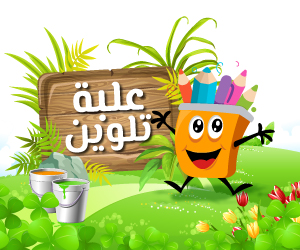Ottoman Music - Sufi islamic Song (الدولة العثمانية) Nasheed Ilahi
Anasheed (Arabic: singular نشيد nashīd, plural أناشيد Anāshīd, meaning: "chants"; also spelt Nasyid in Malaysia and Indonesia; Turkish: ilahi; Urdu: Naat), is Islamic vocal music that is either sung a cappella or accompanied by percussion instruments such as the daff. In general, Islamic anasheed does not contain lamellaphone instruments, string instruments, or wind and brass instruments, although digital remastering—either to mimic percussion instruments or create overtones—is permitted. This is because some Muslim scholars interpret Islam as prohibiting the use of musical instruments except for some basic percussion.
Anasheeds are popular throughout the Islamic world. The material and lyrics of anasheed usually make reference to Islamic beliefs, history, and religion, as well as current events. Nasheeds are also popular among Sufis.[1]
Some Ulema argue that the use of musical instruments is implicitly prohibited in the Ahadith. The founders of all four of the major madhabs—schools of thought in Islam—as well as many other prominent scholars, have debated the legitimacy and use of musical instruments. One such example of the scholars' opinions is of the famous Muslim scholar, Abu Hanifa, according to whose madhab, the Hanafi madhab, if a person is known to listen to such forbidden musical instruments, their testimony is not to be accepted. Another Islamic scholar, Ibn Taymiyyah, once said that music is like alcohol to the soul.[2] A majority of Muslim scholars traditionally have held that music with all its instruments are Haraam: sinful by the hadith, as well as by tradition.[citation needed] .
The only instrument commonly used in Anasheeds is the duff, which is a small hand drum, similar in size to a tambourine, but lacking bells.
It is stated in the Qur'an that
And of mankind is he who purchases Laghwal Hadith to mislead (men) from the Path of Allâh without knowledge, and takes it (Verses of the Qur'ân) by way of mockery. For such there will be a humiliating torment (in the Hell-fire).[3]
Some of the closest companions of Muhammad, namely Abdullah ibn Abbas and Abdullah ibn Mas'ud, state in their Tafsirs (commentaries on the Qur'an) that "Laghwal Hadith" mentioned in the above verse of Qur'an ".. is singing".[citation needed] In particular, it is reported that Abd Allah ibn Mas'ud used to "swear by Allah and say that idle talk is singing."[4]
In addition to this basic evidence, both Sunni and Shi'ite scholars cite several other passages from the Qu'ran as evidence for the prohibition of musical instruments.
Ottoman Music - Sufi islamic Song (الدولة العثمانية) Nasheed
GÜLDÜR GÜL Özhan Eren
Gül olanın aslı güldür, Peygamberin nesli güldür,
Girdim şahın bahçesine, cümlesi aşı güldür gül..
Asmasında gül dalları, kovanında gül balları,
Ağacında gül hâlleri, selvi çınarı güldür gül..
Açıl gel ey gonca gülüm, ağlatma şeydâ bülbülün,
Şu inleyen garib dilin, âh-u efgânı güldür gül..
Gülden terâzi yaparlar, gül ile gülü tartarlar,
Gül alırlar gül satarlar, çarşı pazarı güldür gül..
Gel hâ gel gül ey Nesîmi, geldi yine gül mevsimi,
Bu feryad bülbül sesi mi, sesi feryâdı güldür gül..
NESÎMİ


 وثائقية أحداث وحقائق روايات
وثائقية أحداث وحقائق روايات 
 متع عقلك | شخصيات
متع عقلك | شخصيات 
 Audiolaby | أوديولابي
Audiolaby | أوديولابي 
 NOON Channel - قناة نون
NOON Channel - قناة نون 
 Joe HaTTab
Joe HaTTab 
 DMC
DMC 
 Echo عربي
Echo عربي
 PyramediaChannel
PyramediaChannel
 LilaTV
LilaTV





 AlHayah TV Network
AlHayah TV Network 
 MBC MAX
MBC MAX 
 الليلة ويه دعدوش
الليلة ويه دعدوش 
 MBC The Voice
MBC The Voice 

 القاهرة والناس
القاهرة والناس 